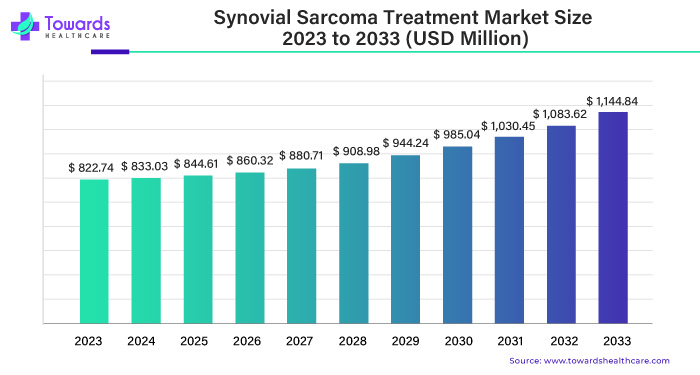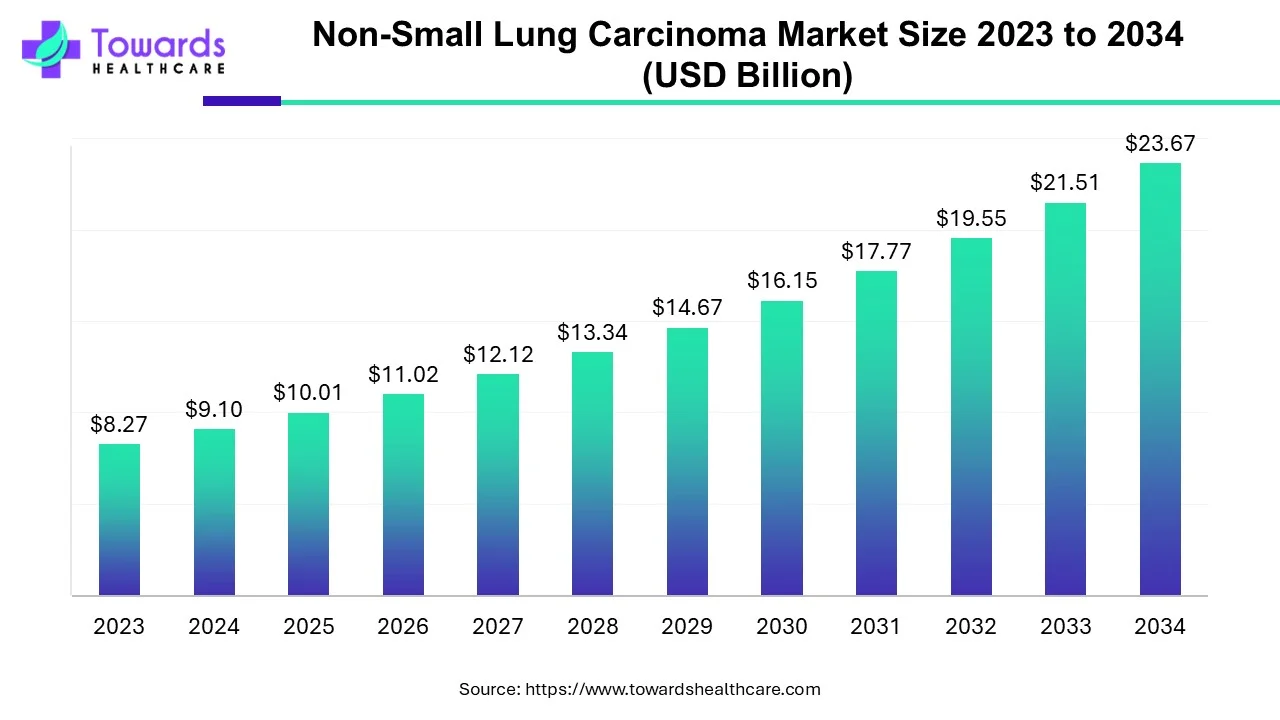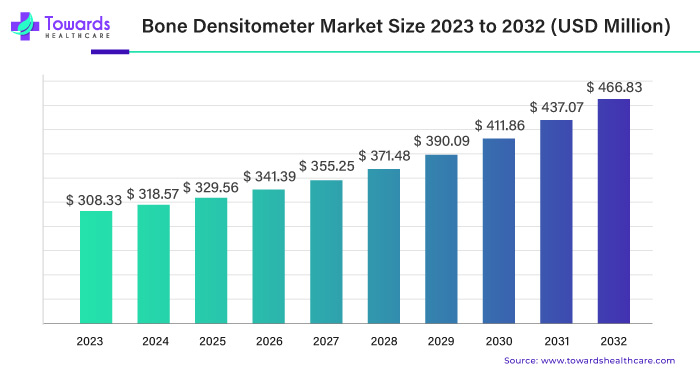Synovial Sarcoma Treatment Market Trends, Key Players and Growth Forecast

The synovial sarcoma treatment market was valued at USD 822.74 million in 2023 and is projected to grow to USD 1,144.84 million by 2033, with an estimated annual growth rate of 3.6% over the forecast period. Surgery continues to be the primary treatment method, holding a substantial 56% share of the market in 2023. North America leads the market, accounting for 41% of the total market share in 2023.

Download statistics of this report @ https://www.towardshealthcare.com/download-statistics/5121
Synovial sarcoma is a rare cancer that primarily affects young adults, usually under 30, and typically develops in the soft tissues around joints. Though it’s called “synovial” sarcoma, it doesn’t originate from the synovium. Early detection and treatment are vital, as it can spread quickly if untreated. Treatment often involves surgery, chemotherapy, and radiation.
The incidence of synovial sarcoma is rising, with about 800 to 1,000 cases annually. It’s caused by a chromosomal abnormality leading to fusion proteins that drive the cancer’s development.
New treatments are emerging, such as Catequentinib, which is being tested in a Phase 3 clinical trial. As the understanding of the disease grows, the demand for effective treatments is increasing.
Synovial Sarcoma Treatment Market Companies
- Novartis: A global leader in healthcare, Novartis is known for its strong oncology portfolio, including targeted therapies and immunotherapies that may benefit patients with synovial sarcoma.
- Eli Lilly and Company: Focused on advancing cancer treatments, Eli Lilly develops precision medicines and is exploring therapies that could target specific pathways involved in synovial sarcoma.
- Adaptimmune: A pioneer in T-cell therapies, Adaptimmune leverages its expertise in engineered T-cell receptors (TCRs) to develop immunotherapies specifically aimed at synovial sarcoma, such as its SPEAR T-cell platform.
- Takara Bio Inc.: Known for its innovative approaches to genetic and cellular therapies, Takara Bio develops products that have potential applications in treating synovial sarcoma and other solid tumors.
- Johnson & Johnson: Through its Janssen Pharmaceutical division, Johnson & Johnson is focused on advancing oncology treatments, including immuno-oncology drugs and targeted therapies that could benefit synovial sarcoma patients.
- F. Hoffmann-La Roche Ltd.: Roche is a global leader in cancer research and therapy development. Its targeted therapies and advancements in personalized medicine could provide new treatment options for synovial sarcoma.
- Eisai Co., Ltd.: This Japanese pharmaceutical company is heavily invested in oncology, with research focused on precision medicine and new therapies targeting rare cancers, including synovial sarcoma.
- Aadi Biosciences: Specializes in mTOR inhibitors, with a focus on rare cancers. Aadi Biosciences’ targeted therapies could offer innovative solutions for managing synovial sarcoma.
- Immunocore Ltd.: A leader in T-cell receptor-based therapies, Immunocore develops cutting-edge immunotherapies that could address synovial sarcoma’s unique molecular profile.
- GlaxoSmithKline (GSK): A major pharmaceutical company with a robust oncology pipeline, GSK is exploring therapies that harness the immune system to combat cancers like synovial sarcoma.
Our Table of Content (TOC) covers key healthcare market segments, materials, technologies and trends—helping you navigate market shifts and make informed decisions: https://www.towardshealthcare.com/table-of-content/synovial-sarcoma-treatment-market-sizing
Access exclusive insight now @ https://www.towardshealthcare.com/price/5121
We’ve prepared a service to support you. Please feel free to contact us at sales@towardshealthcare.com
Web: https://www.towardshealthcare.com
Visit Dental Specifics: https://www.towardsdental.com
Get the latest insights on industry segmentation with our Annual Membership: Get a Subscription
For Latest Update Follow Us: https://www.linkedin.com/company/towards-healthcare





